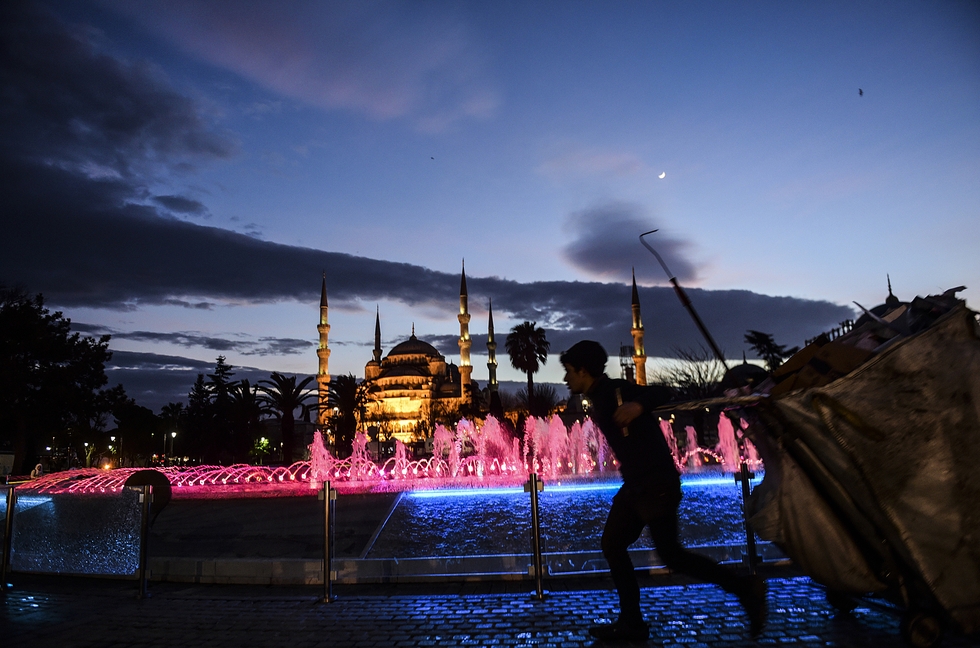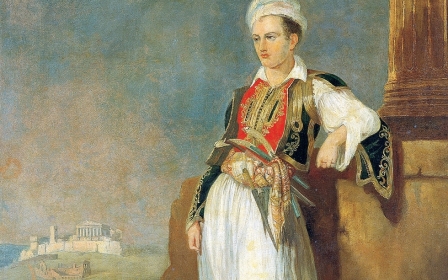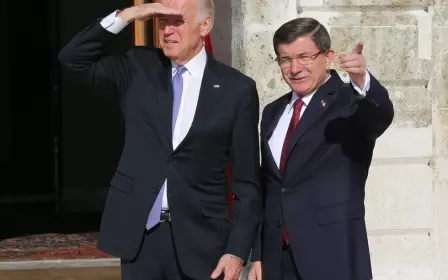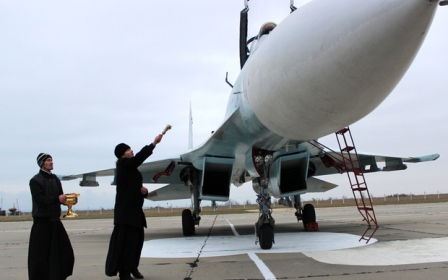The West is playing an old game with the minorities of the Orient

Francois Guizot (1787-1874), France’s foreign minister, and Brugière, Baron de Barante, its ambassador in St Petersburg (the capital of Tsarist Russia) were friends. On 31 December 1840, the minister wrote a special letter to the ambassador in Russia. Guizot started his letter saying "my dear friend, there is no necessity for much explanation between me and you." Perhaps Guizot meant by this phrase to rely on de Barante’s intelligence to comprehend what is intended from his subsequent sentences that were somewhat exploratory. Guizot’s letter goes on to say:
"We (meaning the French) have not had anything to do with the 15 July 1840 agreement (the accord between Britain, Russia and Austria which aimed at ending the war between Egypt’s governor Muhammad Ali Pasha and the Ottoman State), which organised the relationship between the (Ottoman) Sultan and the Pasha (Muhammad Ali) in the aftermath of the European military intervention. Yet, organising the relationship between the Sultan and the Pasha is an internal and incidental matter that concerns the Ottoman Empire. Once this problem is resolved, there will remain that permanent question of the relations between the Ottoman Empire and Europe. This cannot be organised without cooperation (among the European powers), and we are always ready to cooperate. This is the big door through which we may penetrate into the affairs of the East …. In addition to the big door there is a smaller one. Syria, and the Christian population of Lebanon in particular, have the right to obtain from the Sultan, by virtue of a European intervention, guarantees, and in particular an administrative regulation, which may provide them with protection from the abuse they suffered under different rulers and that may secure Syria against sliding once more into chaos … We believe that it is the duty of the Christian powers, even their honour, to support this approach and push forward toward accomplishing a positive practical outcome.
"There are numerous Christians in Asian Turkey and this is the right time for us to do something for them … The days of the Crusader wars have gone, but Jerusalem will always be there, and it will always be venerated and the focus of the passion of millions of people, French, English, German and Russian. Should the Christian forces occupy a position, through negotiations and peaceful intervention, to obtain what may achieve security and respect for Jerusalem, it would incumbent upon them do try … We are still influential in Syria, even the most influential (among European powers). The recent events have not destroyed, in any form or shape, the continued inclination of oriental Catholics toward us. We shall reinforce these (passions) in those places. Our policy and language in the West should be consistent with our position and actions in the East."
About two weeks later, on 13 January 1841, Guizot wrote a similar letter to his ambassador in Vienna, the capital of the Catholic majority Austro-Hungarian empire, in which he stressed the necessity that there should be a Christian dimension for the policies of the European powers and reiterated his call for cooperation among these powers in order to pressure the Ottomans to grant special assurances to the Christians of the Orient and impart a special status on Jerusalem. He also wrote to his ambassador in the Kingdom of Napoli, which is of course Catholic, expressing the same sentiments.
To understand Guizot’s letters to his ambassadors, it is helpful to know something about the context in which his vision of the French policy in the Orient was conceived.
A fierce conflict was taking place at the time between the governor of Egypt, Muhammad Ali Pasha, and the Ottoman centre in Istanbul. It started with the encroachment of the governor's forces over Syria and its seizure around 1831 – 1832 after inflicting defeat on the Sultanate’s army in the battle of Konya. Muhammad Ali had demanded that Syria be annexed to him as a reward for his participation in the war of Greece and as compensation for his considerable losses during the war.
However, Sultan Mahmoud II rejected his demand. The first round of war ended with Istanbul reluctantly conceding to the governor of Egypt authority over Crete, Syria and Hijaz. In 1839, the war erupted once more and the army of Muhammad Ali accomplished another victory defeating the Sultanate’s army, and opening the way before him toward Istanbul.
This time, Britain took the initiative upon the recommendation of its forthright Foreign Minister Lord Palmerston to call on the European powers to intervene in order to prevent the fall of the Sultanate. This is what led to the London agreement in the summer of 1840. France, which supported Muhammad Ali secretly in the hope of reinforcing its authority in the Orient, did not join the accord of the European powers.
However, when the European powers issued their warning to Muhammad Ali ordering him to withdraw from Syria, and then when the British fleet started bombing the ports of Alexandria, Acre and Beirut, France did not dare stand by the governor of Egypt and his army. In this way, the bitter confrontation came to an end concluding with the withdrawal of Muhammad Ali from Syria in exchange for granting him and his dynasty rulership of Egypt. This was something no other governor of the Sultanate ever enjoyed.
The "Eastern Crisis", as it was known in Western records, turned out to be a disaster for France’s influence in the Ottoman Orient. It neither won the friendship of the Sultanate nor did it benefit from Muhammad Ali’s shortlived expansion. This is what prompted Guizot, when he assumed the French Foreign Ministry in the autumn of 1840, to try and repair the French position in the Orient.
What is interesting is that Guizot sent letters to his two ambassadors in St Petersburg and Vienna but not to his ambassador in London. He was fully aware of the British foreign policy mechanism and this made him fully conscience of Palmerston’s determination to punish France for its secret role in supporting Muhammad Ali and to prevent it from reviving its influence in the Orient.
Guizot thought that obtaining the consent of Russia and Austria would neutralise Britain and make it less able to hinder the implementation of his project. Russia had been pursuing an expansionist approach within the Ottoman sphere of influence. It had close links with the Orthodox and Armenians of the Sultanate, who – and not the Catholics – constituted the majority of the Christians of the Orient.
Without Russia’s cooperation, Guizot’s project could never see the light of the day. As for Austria, a Catholic state, Guizot was hoping it would provide an additional support for his project.
Guizot’s messages did not detail his vision in a clear manner. Yet what the other European powers, including Britain - which knew about the project despite the secrecy maintained by the French Foreign Minister - understood was that he was seeking to establish an independent, or semi-independent, administrative status in the district of Jerusalem, which was at the time part of the Damascus governorate.
The new entity would include the Christians of the East, foremost among them the Catholics of Lebanon, and would be placed under the protection of the European powers, particularly France, Russia and Austria. But since the project was still in its early stages, Guizot did not have a conception yet of the borders of the new entity.
What is astonishing is that Guizot did not ask if the Christians of the Orient, who were scattered all over the Orient, would agree to emigrate from their historic homelands to live in such a European protectorate. He did not even ask if the Muslims, who were the majority of the inhabitants of the Jerusalem Province and who also sanctified the city, would accept his project.
In the end, Guizot did not make any progress in his project. The Russians suspected that the French minister was seeking to impart an exaggerated status upon the Catholics with the purpose of bolstering his country’s influence. Metternich, the Austrian chancellor, pointed out somewhat cynically that lumping the Catholics of the Orient together with the Orthodox would not provide them with protection because the latter might not necessarily be compassionate toward the Catholics.
Guizot was not just a foreign minister. He was one of the most prominent French conservative liberals in his age. He was known as a writer, a literary figure and an eloquent speaker as well as a historian. Perhaps students of Marxism would recognise him through the response of Marx and Engles to his history of the English revolution.
In the 1840s, during the reign of King Louis Philippe, all the way to 1848, Guizot, who was Prime Minister from 1847 to 1848, dominated the French political arena. Reflecting the French Revolution’s legacy, and the spirit of state hegemony over its people, Guizot – throughout his long years in the Ministry of Education in the 1830s – endeavoured to spread public education across the country and establish at least one primary school in every community.
In the meantime, the French colonial administration had started to secularise management and education in Algeria, which France had been occupying since 1830. If there is a degree of peculiarity in the Christian foreign policy of a secular and liberal minister, it is even more peculiar that Guizot was not a Catholic but a Protestant.
The fact of the matter is that Guizot’s policy was not in any way religiously motivated. Nor was it Catholic. Guizot policy in essence was the policy of supporting minorities and using them to reinforce the status of the European powers in the confrontation with the majorities. This policy, which was initiated by Tsarist Russia and France, and was then pursued by Britain and afterwards by the United States, is still the Western political approach to the Orient.
- Basheer Nafi is a senior research fellow at Al Jazeera Centre for Studies.
The views expressed in this article belong to the author and do not necessarily reflect the editorial policy of Middle East Eye.
Photo: A man collecting paper pulls a cart past the Ottoman-era Blue Mosque in Istanbul's tourist hub of Sultanahmet on 12 January, 2016 (AFP).
New MEE newsletter: Jerusalem Dispatch
Sign up to get the latest insights and analysis on Israel-Palestine, alongside Turkey Unpacked and other MEE newsletters
Middle East Eye delivers independent and unrivalled coverage and analysis of the Middle East, North Africa and beyond. To learn more about republishing this content and the associated fees, please fill out this form. More about MEE can be found here.





